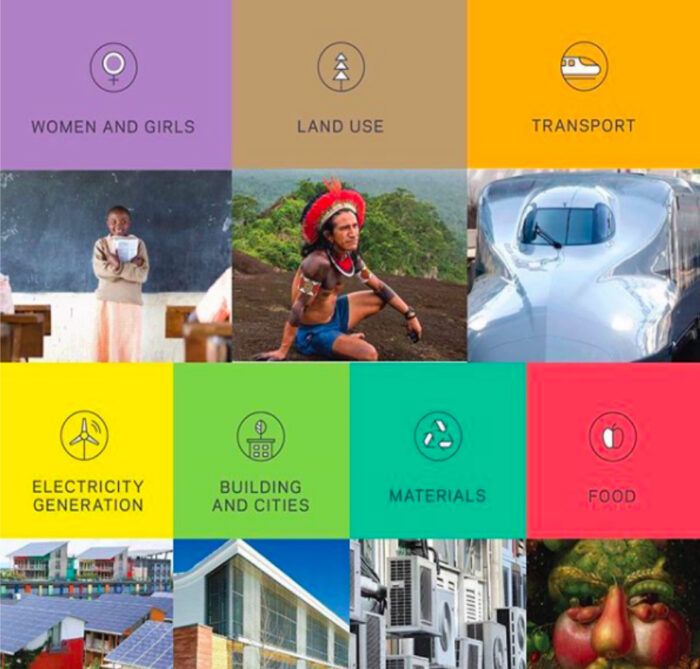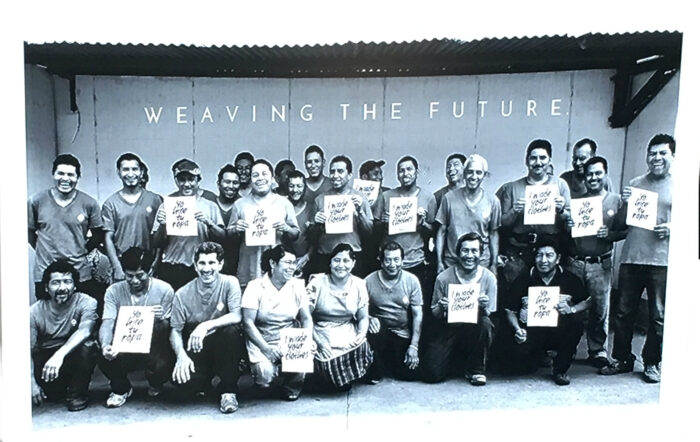What´s next in sustainability? The best from Omina Summit in Costa Rica
By Irene San Segundo
Designers, global disruptors, fashion students, influencers and engineers came together in San José for one of, if not the, biggest sustainable fashion events in Latin America: Omina Summit. I was very lucky to be a part of this three-day information marathon that I could not possibly summarize in just one post, so when you are done with this one be sure to keep an eye out for more upcoming stories about the amazing brands and change makers I met in Costa Rica. To kick things off, I’d like to introduce you to Paul Hawken.
Project Drawdown
To understand how a 72-year-old environmentalist can steal the show from Brazilian supermodel Gisele Bundchen at a fashion summit, one has to learn more about Drawdown, Hawken’s plan to reverse climate change starting NOW.
“When I met Paul I was so impressed and excited about the work he was doing. [He] did a presentation for some of my friends and I about Drawdown and I just felt like I wanted to do everything I could in my power to bring attention to this question. It was really the first time I’ve heard someone that has tangible solutions,” said Bundchen to introduce Hawken to the Omina audience.
Those tangible solutions are intrinsically linked to the fashion industry and are based on numbers, or “pure science,” as he puts it, and they go from educating girls to empowering indigenous people and letting them manage their land, integrating efficient water distribution systems and more sustainable forms of energy such as wind turbines. Hawken and his team have designed 100 solutions you can find with detailed information on his website, all with the same end priority in mind: “The only goal that matters is to reduce the emission of greenhouse gases. Reduce it or nothing. Carbon neutral is not enough, we need to reduce,” he said.

The conference gathered other top sustainability rockstars that are working toward a more ethical fashion industry like Oskar Metsavaht, founder and creative director of cult fashion brand Osklen, who convinced everyone with his mantra “sustainable is the new luxury, it is the new chic”; Isabella Springmühl, a young Guatemalan designer with Down Syndrome who brought the audience to tears with her story about overcoming challenges and making her [fashion] dreams come true; and Celine Seeman, the Lebanese designer and activist who shook up everyone in the conference and got a standing ovation with her soul-stirring message of “fashion activism” and how she uses fashion to make political statements.
The new generation of disruptors
Among the exciting new sustainable fabrics and amazing upcycling stories that I learned about, The New Denim Project and its founder, Arianne Engelberg, were one of the most interesting. After growing up in a family of garment workers – her grandfather was a Polish holocaust survivor who started Iris, a textile business in Guatemala, in 1956 – she decided to make a change and together with her father changed the way their old garment factory worked and started producing new textiles upcycling pre-consumer denim waste that is 100% biodegradable, zero-waste and chemical free.
“1.24 billion pairs of jeans are made annually and 15% of the yardage goes to waste,” Engelberg pointed out during her presentation. During her speech I also learned that 150 million pairs of jeans could be made using only the leftovers from the denim industry in one year–yes, you read that right, 150 million pairs from leftovers alone.

“We buy the waste, the denim scraps, the cut-offs and we turn this back into fiber so we can we spin them again and create very fine yarns converting it to beautiful new products,” said Engelberg of her business process. Some of these new products can now be found at stores such as J. Crew or West Elm, where they’ve recently launched a collection of table linens, oven mitts, tabletops and kitchen accessories made of this upcycled denim. Besides, through their collaboration with West Elm and Whole Foods $1 from every purchase of these kitchen accesories goes to the Whole Planet Foundation and it helps alleviate poverty in Guatemala.
In closing, she summed up her presentation with a beautiful message that left me feeling hopeful and excited for the new generation that is already revolutionizing this industry. “Take care of our collective home, never take more than you need, and if you do, make sure you give back more than you take.”
Stay tuned for more from #OminaSummit!





